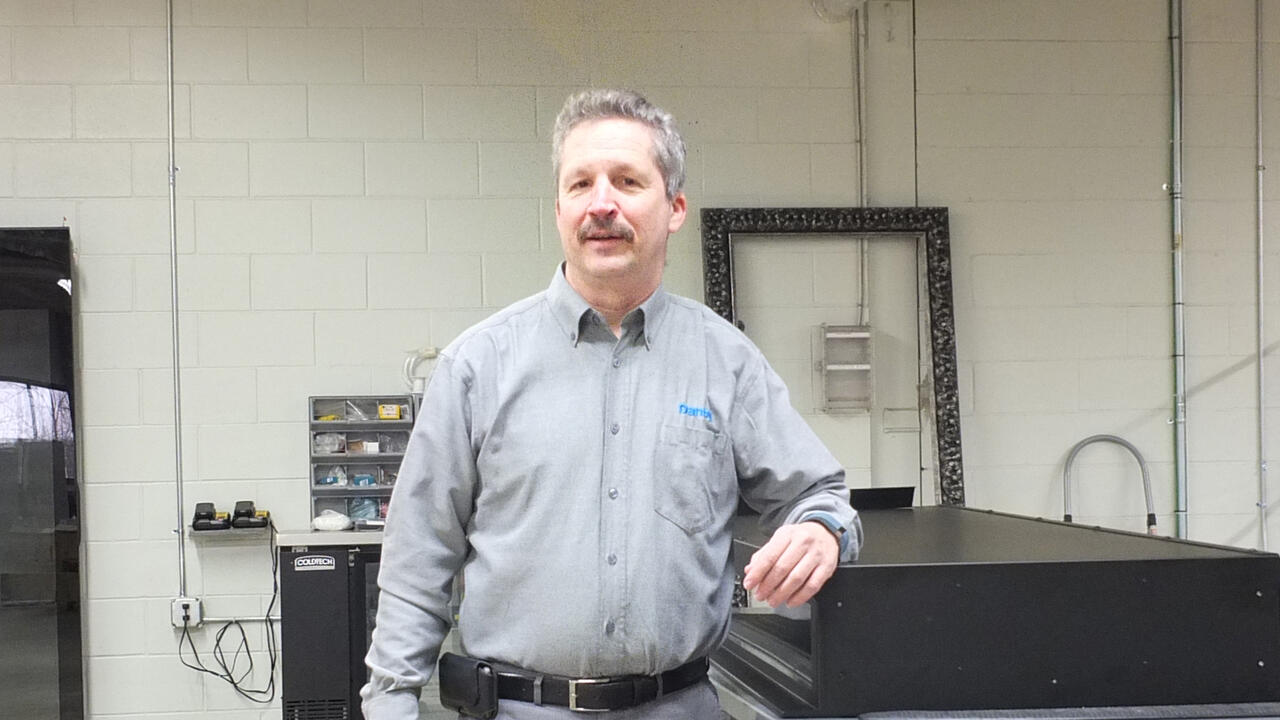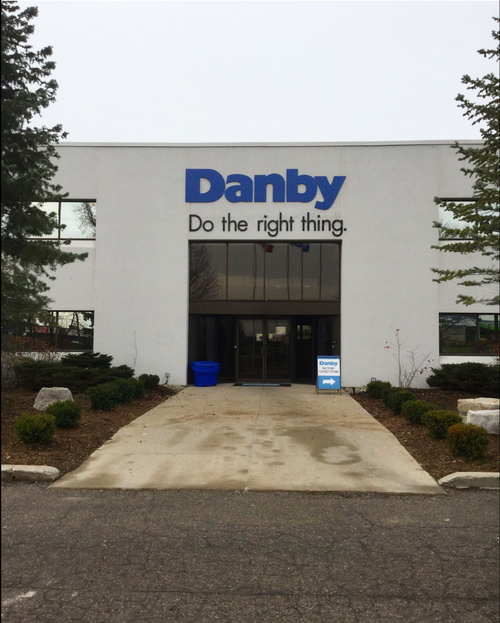
Alumnus recognized as global hero
Jim Estill receives prestigious award for doing the right thing

Jim Estill receives prestigious award for doing the right thing
Jim Estill (BASc '80) received an international heroism award for what he believes was just doing what is right – sponsoring Syrian refugee families.
The Waterloo Engineering alumnus was one of 10 honoured with the Everyday Hero Award of the Global Campaign Against Extremism and Intolerance during a gala dinner held at the New York Public Library in New York City.
Estill was recognized for sponsoring 58 Syrian refugee families — more than 200 people — to come to Guelph, ON, where he is the CEO of appliance manufacturer Danby. With a personal commitment of up to $1.5 million, he’s helped the families find work and, in some cases, start their own businesses.
Despite being invited to the Global Hope Coalition annual dinner held last September, Estill didn’t receive a hero’s welcome when he arrived at the door.
In fact, the FBI almost didn’t let him into the event attended by a number of high-profile guests including the presidents of Afghanistan, Bulgaria, Ghana, Mali and Malta, as well as former British prime minister Tony Blair, former United States first lady Laura Bush, and many others.
Estill jokes that he suspects the FBI wouldn’t let him through security because in his words he was “dressed too shabbily.”
After explaining why he was there, Estill did gain entry to the prestigious event sponsored by the Global Hope Coalition, a network of three not-for-profit foundations in New York, Zurich and Hong Kong.
While many of the guests and hero award recipients gave lengthy speeches, Estill’s was short and to the point.

Danby headquarters in Guelph, ON
“I said ‘do the right thing and when you leave here tonight you can make the world a better place by just doing your part,’” he says.
That philosophy is one Estill believes in when it comes to running his business and giving back by helping others, whether it’s donating to a hospital fundraiser or supporting refugee families.
“I believe it’s a responsibility, it’s just what we should do,” he emphasizes.
Estill graduated in 1980 from systems design engineering, a program he says provided him with a solid background for entrepreneurship. He’s used skills acquired as a Waterloo student to grow a successful business that sells over two million appliances annually and also to ensure a smooth transition for the Syrian families when they arrived in Canada.
“When I sponsored the refugees I knew I couldn’t do it all myself so I set it up like a business,” he explains.
He rallied more than 800 volunteers to help welcome the families to the community and established partnerships with local organizations like the Salvation Army, setting up committees to handle everything from housing to mentorship, and developing checklists to ensure each family’s needs are met.
On top of the families Estill is sponsoring in Guelph, he also helped a nine-year-old boy and his family sponsor another Syrian family in Cambridge, ON.
Along the way, Estill has needed to add programs to meet the needs of the Syrians. After referring many as prospective employees to his friends, he discovered they weren’t job-ready.
To ensure they gained the necessary skills, Estill designed a program called Ease into Canada where he hired any refugee, not just the ones he had sponsored, for 90 days. While the program focused on English as a second language, it also delved into job skill training, resume writing and interview coaching.
Estill explains that the real success of his involvement with the refugees will be measured in a decade from now when families are working, paying taxes and giving back to society in other ways.
Estill says sponsoring the Syrian refugee families has led to many unintended consequences, including high engagement from Estill’s Danby employees.
“They think it’s inspirational to save the world,” he says. “I don’t even advertise for positions any longer because so many people apply.”
The unintended consequences have also included considerable press coverage, which has resulted in increased requests from Syrian families who want to be sponsored.
“A lot of the letters break my heart because you can’t sponsor everyone. The stories are legitimate and these are real people,” he says. “But hopefully because of the press, I’ve influenced other people to help do their part.”
Estill points out that what he’s working on is a band-aid solution to the real problems faced by the families still living in Syria, a country that has been at war for seven years.
“But fixing the problem is beyond my capability,” he says. “So there’s a feeling of helplessness or despair, but the flip side of that is gratitude.”
Estill, who was honoured with the Order of Ontario last year, has always believed in being thankful and keeps a gratitude journal to make sure he doesn’t forget what he has in life.
“I’m a grateful guy and I always have been,” he says. “What I’ve seen in the refugees is that people who are happy are the ones who are grateful for what they have and not ungrateful for what they don’t have or ungrateful for the fact that someone else has something different or better.”

Read more
Here are the people and events behind some of this year’s most compelling Waterloo stories

Read more
Waterloo Engineering community honours impact and innovation at annual awards dinner

Read more
Meet five exceptional Waterloo graduate students crossing the convocation stage as Class of 2025 valedictorians
The University of Waterloo acknowledges that much of our work takes place on the traditional territory of the Neutral, Anishinaabeg, and Haudenosaunee peoples. Our main campus is situated on the Haldimand Tract, the land granted to the Six Nations that includes six miles on each side of the Grand River. Our active work toward reconciliation takes place across our campuses through research, learning, teaching, and community building, and is co-ordinated within the Office of Indigenous Relations.